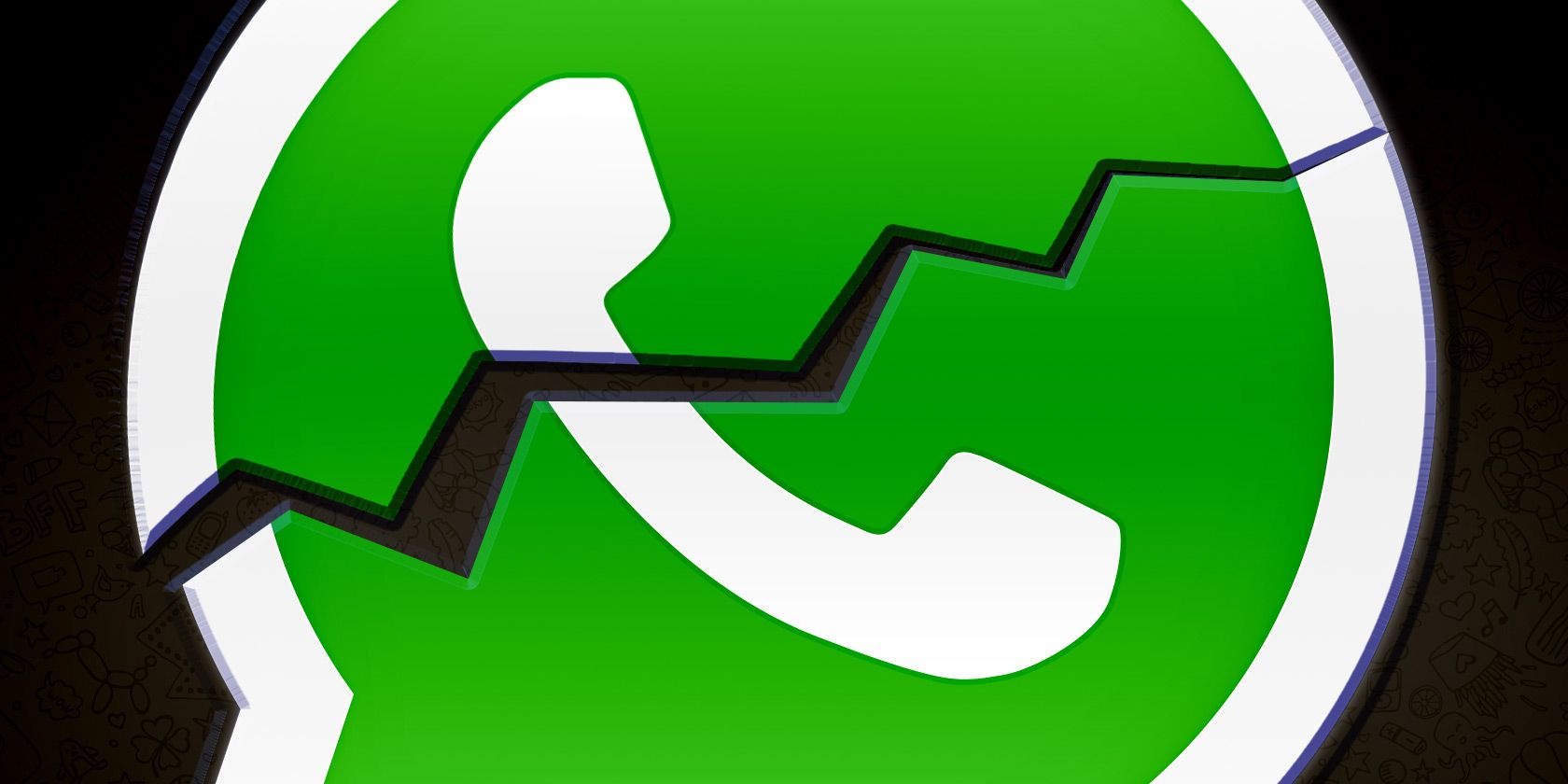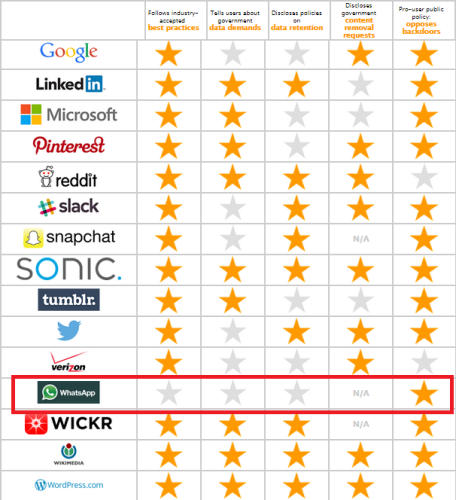WhatsApp is the most popular instant messaging service in the world today. Since being launched in 2009 it's grown rapidly, and now has a staggering 800 million active users.
However, just because it's popular it doesn't mean you should leap straight in. There are negative sides to the service, and they need to be considered before you make the decision to sign up.
Here we take a look at some of those less-than-positives aspects of the app…
The Company Doesn't Care About Your Data
Earlier this summer, the Electronic Frontier Foundation (EFF) released their annual report called "Who Has Your Back?". It aims to rank the world's largest technology companies how on protective they are of their users' data.
Each company is ranked based on five criteria:
1) Do they follow best practices for data security?
2) Do they tell users when the government demands their data?
3) Are they open about their policies on data retention?
4) Do they disclose when government asks for content to be removed?
5) Do they publicly oppose backdoors that let the government get easy access to data?
It was WhatsApp's first year on the report and they had a year to prepare. Despite that, it came in joint-last place (along with AT&T).
In a statement, the EFF said "[WhatsApp] has adopted none of the best practices we've identified as part of this report".
There's No Hiding
One of the coolest features that WhatsApp have introduced in the last couple of years is the "double blue tick". It's also one of the least private features – as soon as you open and read a message, the person who sent you that message will be notified by the presence of these ticks on their own screen.
It means that if you get a message from someone you don't want to reply to but you also don't want to offend (such as your boss or ex-partner), there is no way to hide the fact the fact you're just ignoring them.
Furthermore, the time and date you last used the app is visible to all – so even if you consciously didn't open the message to avoid sending the blue ticks, the ignored person will still see that you've opened the app to chat with other people.
Be Wary of Using the Web Client
The launch of the WhatsApp web client was one of the most heralded updates for the app in its six-year history.
Although it's undeniably a useful service, it comes fraught with danger. For example, cyber-criminals have started distributing bad download links that masquerade as real WhatsApp clients. Instead of linking you to the service, however, they'll just download aggressive malware onto your machine.
Our very own Dann Albright covered this in more detail when he looked at a range of WhatsApp security threats you could face.
It's Owned By Facebook
On 19th February 2014, Facebook bought WhatsApp for an eye-watering $19 billion. It marked Facebook's largest acquisition to date.
While having the backing of corporate power of a tech giant such as Facebook will undoubtedly lead to new innovations and new features – it's sure to set alarm bells ringing for some users. Facebook have been involved in plenty of their own security and privacy scandals down the years, and in lots of people's eyes they might not be particularly trustworthy when it comes to fixing the aforementioned problems raised by the EFF.
You Need Internet Access
If you think WhatsApp is going to be able to remove the need for regular text messages and phone calls, think again.
WhatsApp is a purely Internet-based service. That means if you live in an area with poor signal, or you're travelling through lands where fast mobile Internet simply doesn't exist, you're not going to be able to use the app.
It should complement your existing means of communication, not replace them.
It's Not Free
WhatsApp used to be free for all users. Sadly that's no longer the case.
Today, the first year of service is free, but thereafter it will cost you $0.99 per year. It's clearly not a lot of money, but if you don't have card details registered with Google Play or the Apple App Store, it could come as a nasty surprise and end up knocking you offline for a couple of days.
There's also no guarantee that the price won't go up in the future – it's easy for the developers to get you hooked now only to milk you for more cash in the coming years.
(Note – if you paid $0.99 for the initial download, you'll have a lifetime subscription.)
Your Profile Picture
Lots of users choose to set a profile picture for themselves. If you're one of them, you need to be aware that anyone can see that picture if they have your phone number, even if they've never met you.
The perpetrator just needs to save your number in their phone and refresh their WhatsApp contact list.
If you're privacy-conscious, you should question whether it's really worth having a profile picture selected. What benefits does it offer you?
Your Friends Need WhatsApp and a Smartphone
WhatsApp only works if your friends also have a smartphone with WhatsApp installed on it. If they lose their phone, they can't use WhatsApp for any reason, they don't have the app installed, or they old have an old Nokia 3210, you'll be cut off from each another.
For international friends this could be an issue. Despite its popularity, WhatsApp isn't the number one instant messaging app in every country in the world. In Asia especially there are lots of worthwhile competitors with huge user-bases, including Line, WeChat, and Wangxin.
What Makes You Wary?
What makes you wary of WhatsApp? Did we cover you concerns here or do you have other issues with the service?
Perhaps you've got a great alternative you can share with your fellow readers?
As always, we'd love to hear from you. You can let us know your thoughts and feedback in the comments section below.


